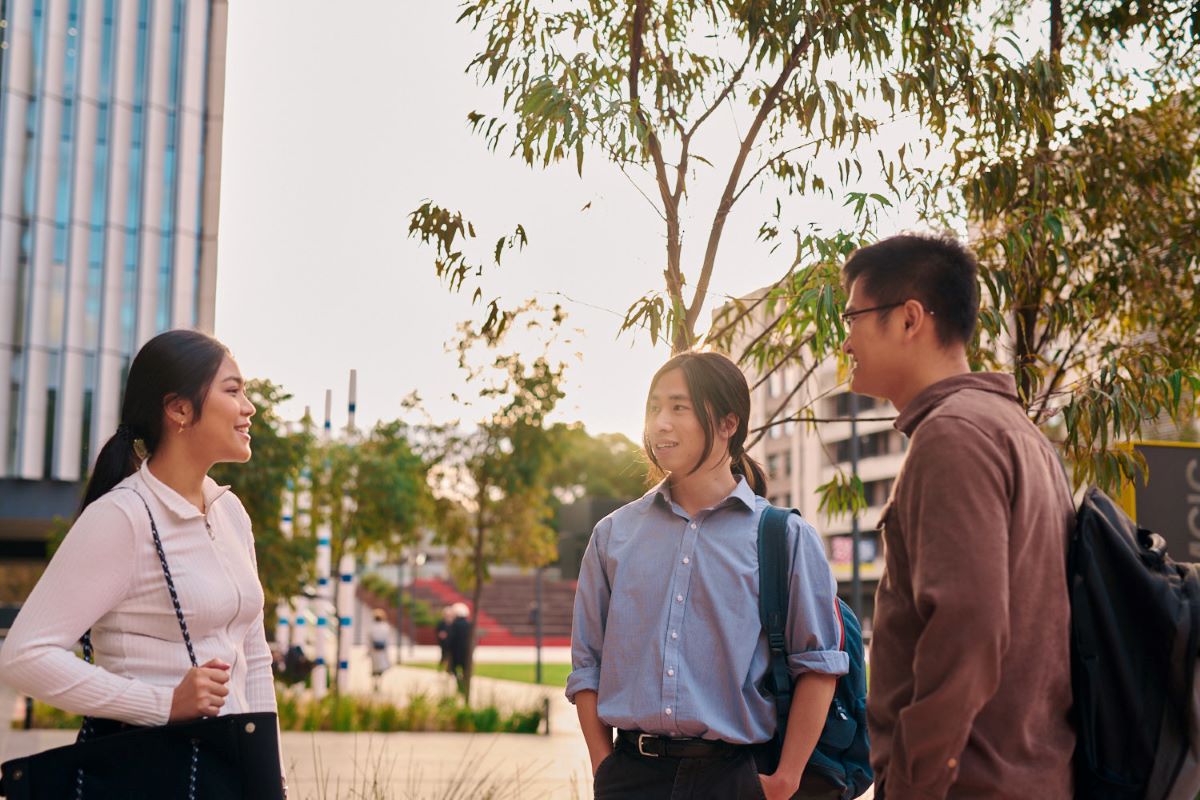
It’s normal to feel a little bit nervous about starting your studies, especially in a new country.
We’ve got you covered with these great tips, to make the most of your first few weeks as a student in Australia.
Make the most of support services
If you are having any problems or concerns when settling in, you’re not alone. There are plenty of support services available to you.
Education provider support services
Education providers have student support staff to look after international students. The student support services can include:
- orientation programs
- employment and careers services
- language and learning support
- mental health, wellbeing, and counselling services
- student accommodation and housing services
- childcare services.
Check the website of your place of study for details.
Australian state and territory student services
Each state and territory, and many cities, in Australia also offer free support services for international students, such as:
- careers advice
- counselling
- social groups, events, and activities
- legal advice
- helpful resources and information about local services.
Visit your state or territory’s support services page via the links below:
- StudyAdelaide
- Study Queensland
- Study NSW (New South Wales)
- Study Canberra
- Study Melbourne
- Study NT (Northern Territory)
- Study Perth
- Study Tasmania
Check class locations in advance
Some education providers in Australia have very big campuses and many buildings scattered far and wide. To avoid stress and being late for class, check the location of your lecture/tutorial rooms or labs in advance. This will help you work out how long it will take to get around.
Orientation Week is a good time to explore the campus and learn about the facililties, services and resources available to you.
Prepare for your day
Create a morning routine that allows for a smooth start to your day on campus.
- Pack your bag and prepare your lunch the night before.
- Make sure you have enough time in the morning to get ready, grab a coffee and eat breakfast.
- If you have a practical session, don’t forget any equipment you might need, such as safety goggles or a lab coat.
Get out of your comfort zone
To begin with, you may feel a little bit lost or lonely on campus. It takes time to get to know your way around and to make friends. But just remember that others are probably feeling the same way too!
Here are some ways to get involved:
- Join the Orientation Week activities to meet other students.
- Say hello to the people you sit next to in your lectures and ask them questions to get to know them.
- Find out if there are any university events that you can attend or sports teams you can join.
- Get involved in university clubs, volunteering and events.
Check out this blog post for more tips on getting involved with student life and making friends.
Stay up-to-date with course schedules and requirements
If you’re studying at a university or TAFE, your teachers won’t check in with you if you miss class or deadlines. So you need to make sure you stay on top of these yourself.
You will be given assessments and exams throughout the semester and you might even have to complete a research or placement component. Keep a note of when these are due, so you don’t leave things to the last minute. They may require more research and preparation than you think.
Be prepared for different teaching and learning styles
Courses can have various components such as lectures, practical sessions and workshops or tutorials.
In lectures, you will usually listen to the teacher and take notes. Whereas, in workshops or tutorials, you can discuss your thoughts and opinions.
Critical thinking is encouraged by Australian education providers. This gives you the chance to think creatively, challenge ideas and come to your own conclusions about things that matter to you.
Eat well and make time for exercise
You need good brainpower for optimal learning, so make sure you eat nourishing foods when studying. Eating nutritious foods helps to support cognitive function and focused learning and attention.
Exercise also has brain boosting benefits. Make time for physical activity before, during or after your day in classes. You could:
- ride your bike to campus
- go to your campus gym in between lectures
- get off your bus or train early and walk the rest of the way
- get out in nature and walk, run, climb and explore
- join a local community or campus-based sports club.
And finally...
Stay safe and have a great time! Even though settling in can be challening at times, you will learn and grow as a person and make some amazing memories along the way.